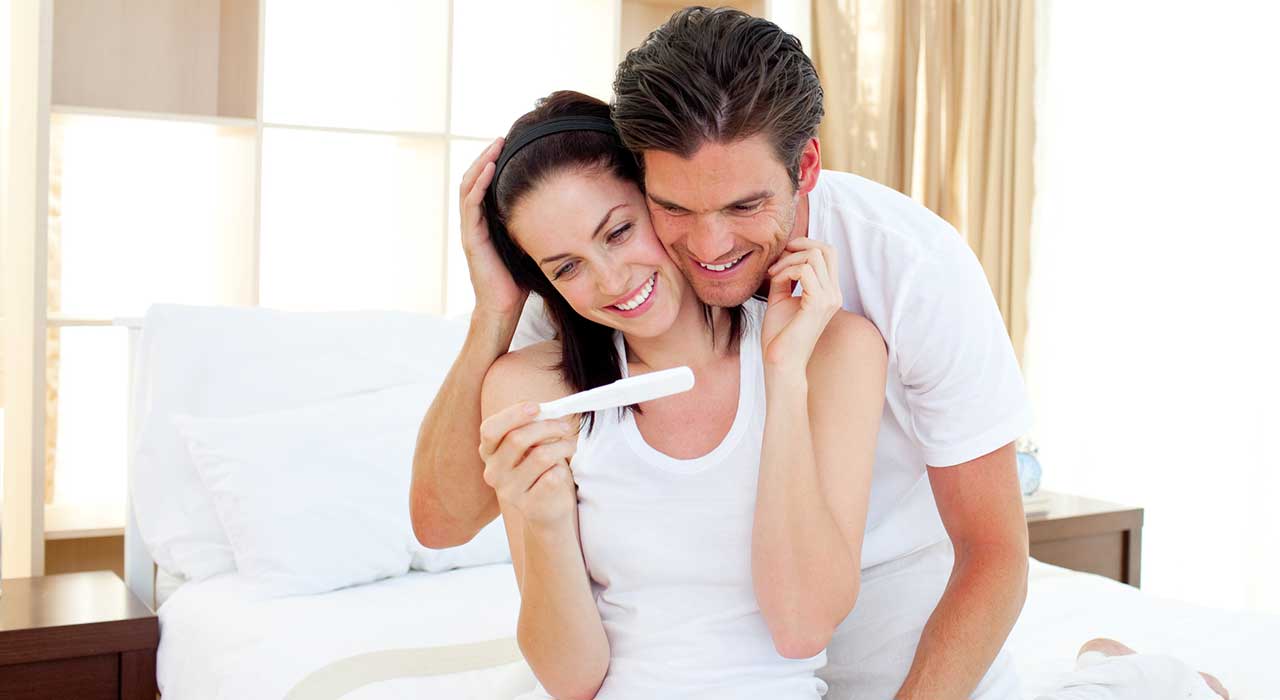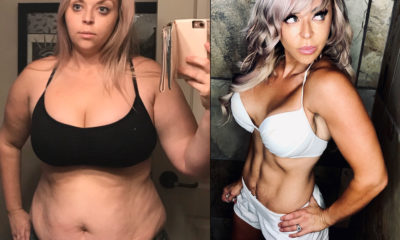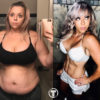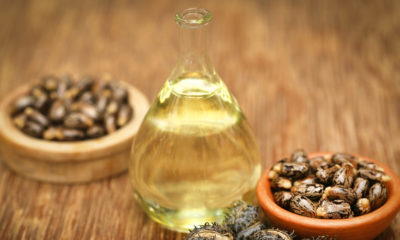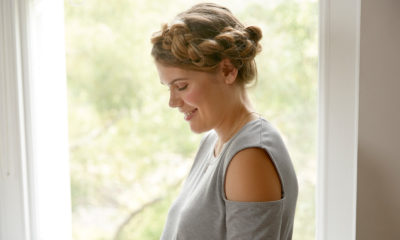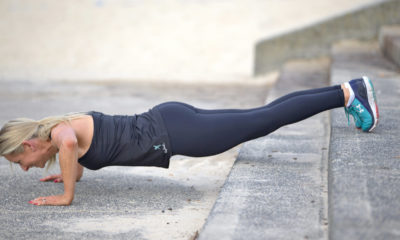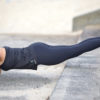Health
Everything You Need To Know About Your Fertility Health
Healthy bird, healthy eggs: whether you’re a chicken or a human, the same concept applies. And while the idea of your own brood might not be something you want right now (or even ever) your ovaries should still be of concern to you now.
This is because your fertility, and the overall health of your eggs and hormone system, speaks volumes about your health in general. Your eggs rely on just the right hormonal balance to stay in good shape, and those hormones have a knock-on effect on almost all other elements of your fitness and health. Muscle power, stamina, weight loss… you name it, hormones are involved.
We know regular exercise and a balanced diet can help to regulate hormone production and monthly cycles,” says Lisa Jane Holmes, of wildcatfitness.co.uk. But it’s not as simple as do lots of exercise and you’ll be hormonally fit too. “Extreme cardio sessions (such as treadmill HIIT classes or Insanitystyle workouts) can lead to excess cortisol production, which could potentially contribute to adrenal fatigue – so if you’re up at 5.30am and on the treadmill in Barry’s Bootcamp by 6am most days, then you might want to review your exercise schedule and start thinking about workouts which place a little less stress on the body,” says Holmes.
“There’s nothing wrong with cardio, but something like a steady state 5k run would be less taxing on your metabolism, hormones and adrenal glands – all of which will contribute to the regulation of your monthly cycle. Intense exercise sessions can lead to a decrease in the production of hormones relating to ovarian function.”
Hormone cycle
Unlike men, women’s hormone levels fluctuate quite dramatically throughout the menstrual cycle. There’s the low-hormone phase, which lasts from the first day of your period until you’ve ovulated (around day 14 if you have a 28-day cycle, day 15 if you have a 30-day cycle, day 16 on a 31-day cycle and so on), then the high hormone phase between ovulation and the next period. Your hormones, especially estrogen and progesterone, control that cycle. And which part of your body produces those hormones? You guessed it, your ovaries.
When your ovaries are out of whack, your body doesn’t secrete the same levels of those hormones, which can lead to irregular periods, for example. And there’s evidence to show that strenuous activity can have this effect. A Norwegian population-based survey of nearly 4,000 women under 45 found a clear link between exercise intensity and fertility. Women who were active most days were more than three times more likely to have fertility problems than inactive women. And those who exercised to the point of exhaustion were more than twice as likely to be infertile than those who engaged in less strenuous activities, according to results published in Human Reproduction.
This is because with strenuous exercise comes lower progesterone levels, as well as released endorphins. While it feels good at the time, the combination of those two changes suppress hormones responsible for producing eggs. That, in turn, means irregular periods and reduced fertility.
Pushing your body too hard
While irregular periods might not bother you too much, maybe they should. Because while you might feel the fittest you’ve ever been, running marathons back-to-back or pushing yourself to extremes at the gym, if your cycle is irregular it means your body is having to divert excess energy to healing muscle injuries and recovering, so much so that it’s not capable of supplying enough energy and nutrients to trigger an egg to release. This indicates that you’re pushing your body harder than is healthy.
Of course, if you’re an Olympic athlete, maybe pushing your body that hard is exactly what you want. However, if you’re simply a woman who loves fitness, you might want to scale it back a bit because a messed up hormonal system may have serious implications for your health, not just your fertility.
If you continue to miss periods, with your body unable to go through the monthly cycle, your body won’t produce as much estrogen as it usually does as part of the process. This in turn can put you at higher risk of osteoporosis, where your bones become more brittle and fragile, and it can even trigger heart attacks.
Of course, there are women who naturally produce less oestrogen and so have never had regular periods. But unless you’ve been diagnosed with low estrogen levels and have talked about treatments with your doctor, irregular periods are something to be concerned about. While strenuous exercise can trigger irregular menstrual cycles there are other far more potentially serious causes. Women with ovarian or adrenal cancer, for example, may experience irregular or unusual periods – as ovarian cancer is often left undiagnosed until quite late, it’s worth going to see your GP if you have irregular periods, whether or not you’re doing strenuous exercise.
Dropping in estrogen
Lacking in estrogen also puts you at greater risk of injury. A study* from London Portland Hospital found since estrogen helps support muscle and ligament strength, the drop in levels mid-cycle meant women were more likely to report a strain or other muscle-related injury at those times.
Pre or post-menopausal women, who have a lot less estrogen, are more likely to suffer an injury, and women in the middle of their cycle are also more at risk because this is the point at which estrogen levels are lowest. So if your body isn’t going through the natural cycle every month, and producing the necessary estrogen, you might also be at higher risk of muscle injury.
Even if your hormones and ovaries are in perfect working condition, though, those hormones are still worth paying attention to because to get the most of your workouts, avoid injury and have a faster recovery time, you need to know your cycle.
So, during the high-hormone phase, also called the luteal phase, progesterone levels increase and trigger more body heat. Your body also processes and releases more sodium (which is also why you might feel bloated because body struggles to retain water, storing it around your midriff or in the form of cankles!). These two aspects combined can lead to problems affecting your performance at the gym – headaches and cramps and even nausea and vomiting. What’s more, even though you feel as though you’re hoarding water, your body actually needs more – this is the time to glug back a bottle or two! Estrogen and progesterone cause your blood to thicken, which means it doesn’t circulate in your body as quickly or efficiently, making a work out more of a work out than it usually is.
Also during the high hormone phase when progesterone is looming large, your body needs more protein than it usually would, otherwise amino acids start to break down which can hinder muscle recovery. So to make sure your muscles aren’t lacking in access to protein, consider upping your intake by around 10 per cent to help keep your system strong.
And finally
Once your period has ended – phew! – you might think it’s the ideal time to go for it at the gym, but your hormones may have other ideas. At this point you’ve got low estrogen and progesterone, which can cause tiredness (not to mention a lack of interest in sex).
The way you digest and process your food changes at this time too. A study published in the American Journal of Nutrition found basal metabolic rate fell at the beginning of your period, continuing to fall until a week before ovulation. This means even though you may be eating the same foods, you’re digesting them slower, which could mean more weight gain. So during this time it pays to up your exercise output and reduce your calorie intake, especially if you’re trying to lose weight or stay slim. Don’t worry, your hormones also give you a helping hand during and just after ovulation making you burn calories faster than usual, so use that time to indulge a little!
What if I’m on the pill?
If you’re on the pill, you’re taking hormones, usually progesterone, or estrogen and progesterone. As you won’t experience the drop in estrogen women not on the pill experience, you may be at reduced risk of injury. However, depending on the pill you take, you may experience unwanted weight gain or bloating. If that’s the case, see your GP and ask to change to a different brand, which may suit you better.
How’s my cycle?
If you’re not sure whether your menstrual cycle is healthy or not, start taking notes
Track it
“Tracking cycles is key,” says fertility guru Zita West (www.zitawest.com). Write down the first and last day of your period; keep doing this for a couple of months to get an idea of how regular your periods are and how long your cycle is.
Check for egg white
“Watch out for cervical secretions around 10 days after your period,” says West. “The mucous starts off quite thick and sticky, and then gets wetter. When it resembles egg white you will ovulate in the next couple of days.”
Know you are unique
Be aware, though, that this timing of ovulation will depend on how long your cycle is. For a woman with a longer cycle, the secretions will come later. Cycles can range anywhere from 21-35 days in adults and 21-45 days in teens.
Find in depth features and health advice in every issue of TRAIN for HER magazine.


